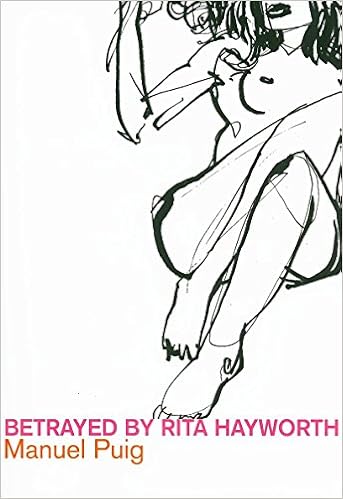What can I say of this book for which I hold such conflicting feelings? It has taken me decades to getting around to reading Manuel Puig. Time gets away, and there are so many things to read. I was intending to read Kiss of the Spider Woman, but the book was unavailable, and in a sense, I was relieved, because I actually wanted to try something else of Puig’s. And so I tried this, his first novel.
Puig is a post-boom writer, as some Latin American literature scholars call those writing after Cortazar and Borges had hit their zenith. And his is a very different text to the magic realism that seems to hold so many Latin American authors imprisoned. I love magic realism, but it’s interesting to read someone who isn’t focused on that. Puig’s novel isn’t even in the objective realist tradition that some other Latin Americans I’ve read fall into. Rather, he seems to fall in line more with William Faulkner, James Joyce, and that ilk. And in that sense, I wish I’d had the time and the ability to concentrate on Puig’s text that I felt it demanded.
The book is written in various styles, but the bulk of it is written in stream of consciousness. Other styles include dialogue (sometimes only half of the conversation is provided to the readers), letters, reports, and diaries. The diaries are the easiest to follow, but they come late in the book. The sections are presented over the course of about fifteen years and involve different narrators. The result is that the book is rather hard to follow.
Was there a plot? Not much of one. Rather, we’re introduced to a village, a rural town, called Vallejos, and we learn about the people who populate it. With so many people and such indirect means of presentation, however, gleaning what’s going on is a task. In essence, it’s like we’re one of those people listening to half a conversation and getting sections of gossip but never the whole story. Only with great concentration will we glean what’s really going on.
Or not. Because of course much of what is going on is in the imagination or in the guise of falsehoods and rumor. So reality is twisted per whatever point of view you are getting the story from.
Vaguely, we learn the story of Mita and Berto and their son Toto. Toto loves movies. Berto looks like a movie star. Toto grows up to become (at least insofar as he becomes a teenager) a rather intelligent young man, a nerd of sorts. His cousin Hector lives with the family, and Hector is a brute, as are many of the young men who populate the novel, whose main goal seems to be to beat others up and to add as many girls to their list of conquests as possible.
With a title focused on a famous actress, the book obviously flaunts its connection to film--or rather characters’ obsession with the movies. An “essay” that appears in the book, which is about a film one of the characters has seen, appears to be almost entirely a summary of the film. Characters discuss movies, actresses (wholesome women versus bad women in film), and how to make it with a gal in the dark. Film’s role in lending the lives of these people meaning is everywhere.
The writing throughout the book is stellar. I’d be tempted to read another work of Puig’s, but I might just need to reread this work first--give it the due attention it deserves. I suspect I might need to do that for any other book of his.
Subscribe to:
Post Comments (Atom)







No comments:
Post a Comment